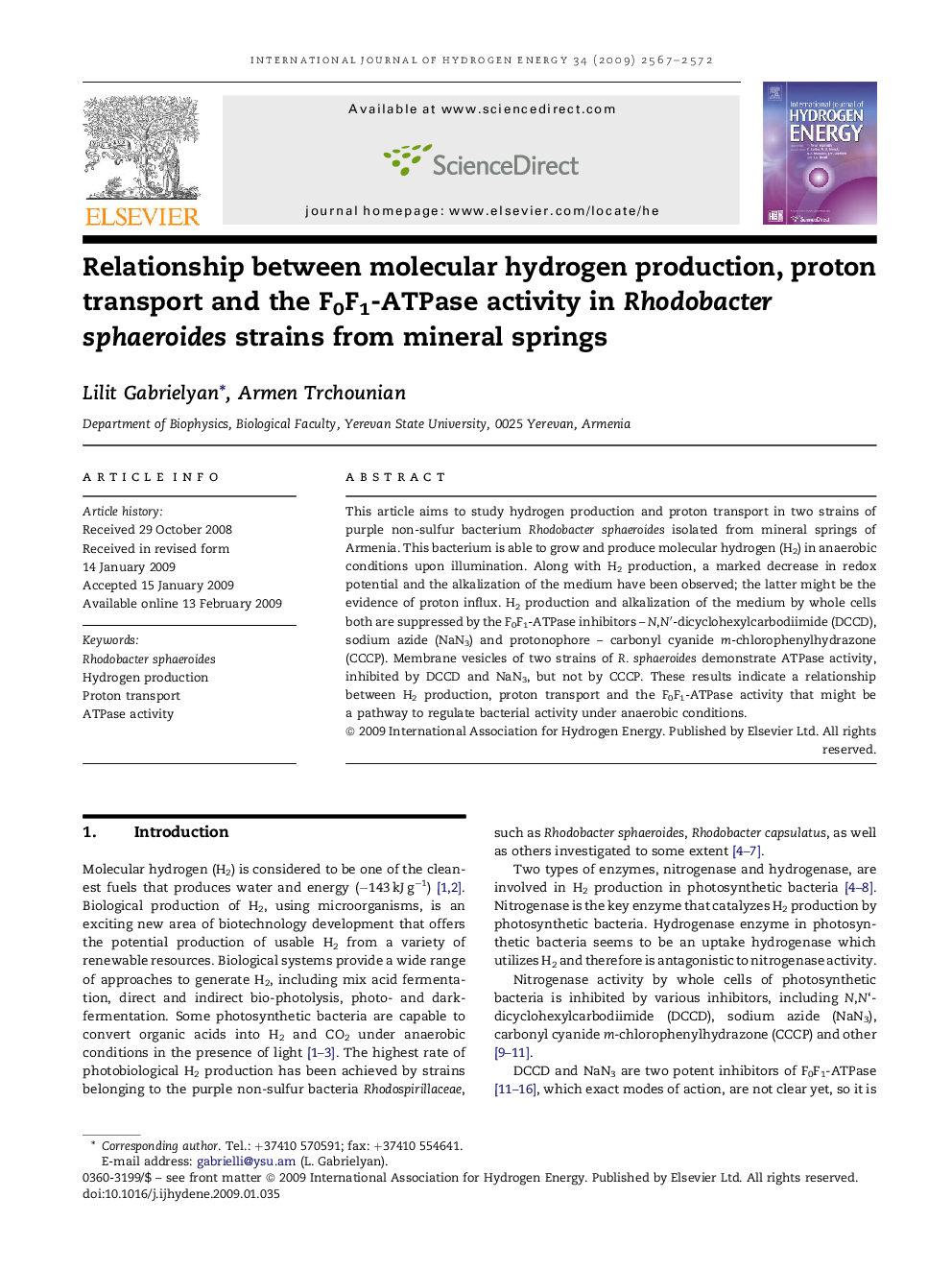| Article ID | Journal | Published Year | Pages | File Type |
|---|---|---|---|---|
| 1281186 | International Journal of Hydrogen Energy | 2009 | 6 Pages |
This article aims to study hydrogen production and proton transport in two strains of purple non-sulfur bacterium Rhodobacter sphaeroides isolated from mineral springs of Armenia. This bacterium is able to grow and produce molecular hydrogen (H2) in anaerobic conditions upon illumination. Along with H2 production, a marked decrease in redox potential and the alkalization of the medium have been observed; the latter might be the evidence of proton influx. H2 production and alkalization of the medium by whole cells both are suppressed by the F0F1-ATPase inhibitors – N,N′-dicyclohexylcarbodiimide (DCCD), sodium azide (NaN3) and protonophore – carbonyl cyanide m-chlorophenylhydrazone (CCCP). Membrane vesicles of two strains of R. sphaeroides demonstrate ATPase activity, inhibited by DCCD and NaN3, but not by CCCP. These results indicate a relationship between H2 production, proton transport and the F0F1-ATPase activity that might be a pathway to regulate bacterial activity under anaerobic conditions.
